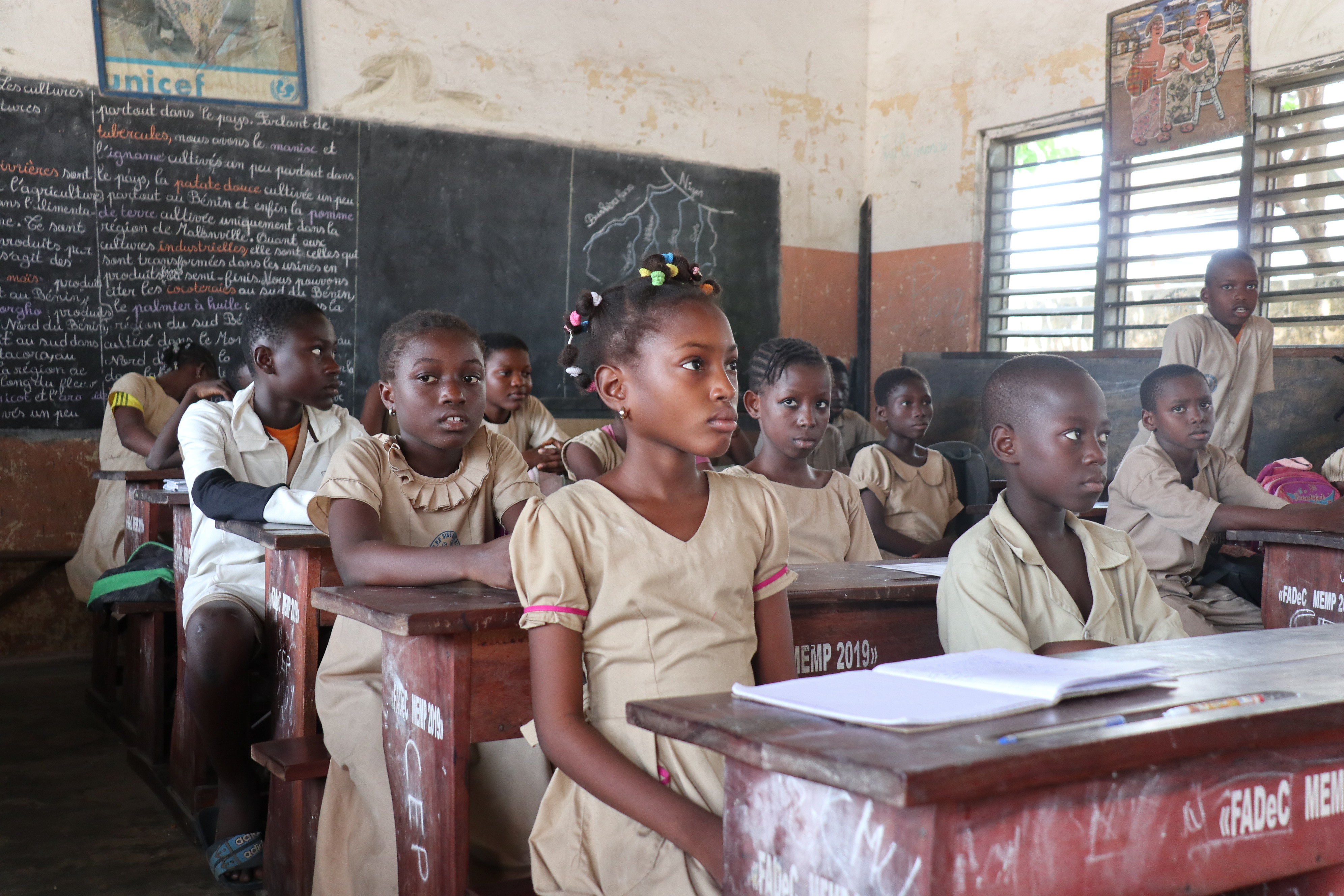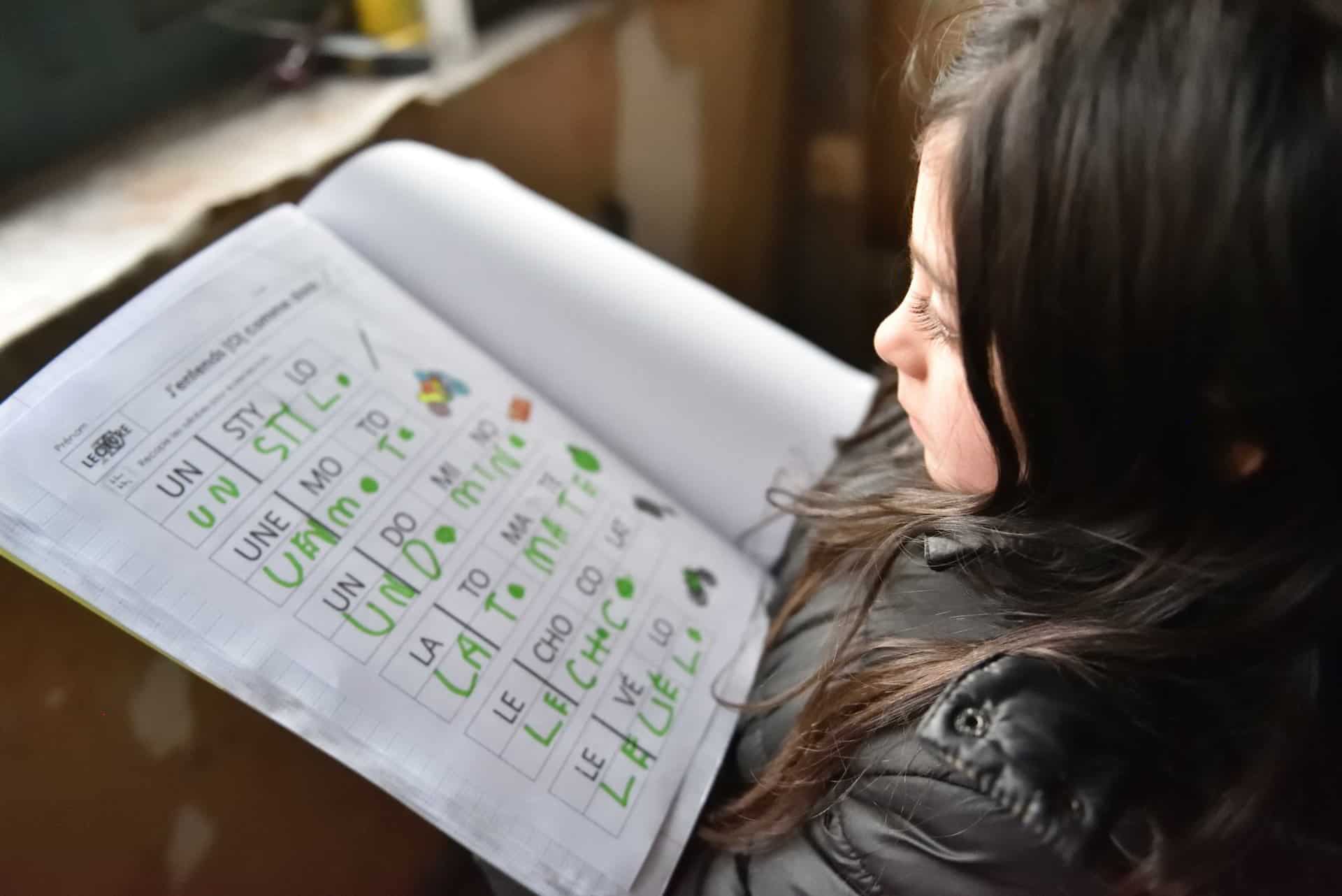Photo credit: Naïade Plante
In India, migrant workers are the hardest hit by the consequences of the government-imposed containment to limit the spread of COVID-19. With the closure of the Indian inter-state borders and the loss of their source of income overnight, the impact on their daily lives is considerable and devastating. Aide et Action is adapting its intervention to address this situation.
In India, nearly 100 million people are considered seasonal migrant workers. Already exposed to particularly difficult living conditions in "normal" times, this population is further weakened by the COVID-19 crisis. The government-imposed confinement prevents them from working and thus deprives them of any source of income. In addition, the closure of the Indian interstate borders makes it impossible for them to return to their communities of origin. Thus, they find themselves particularly isolated and deprived. Faced with this situation, Aide et Action is adapting its intervention by developing several strategies to stay in touch with these communities, with whom we already work on a daily basis, and help them stay safe.
Vocational training: a digital response
Firstly, our vocational training programme, iLEAD, has gone digital. The resource teams have created several Whatsapp groups with students to share interactive assignments online and keep them motivated and learning, despite the confinement.
Whatsapp groups also help the teams to know the living conditions of former students who are far from home. For example, based on information received regarding non-payment or partial payment of their salaries, Aide et Action was able to intervene by contacting the concerned employers. They were reminded of the obligation imposed by the Indian government to pay full salaries to employees. Similarly, our teams also shared the contacts of emergency services for the benefit of former iLEAD students who needed them.
Migrants: advocacy work with Indian authorities
The sudden closure of construction sites forced thousands of migrants to leave their workplaces and head for their villages, hundreds of kilometres away, on foot, without transport and often starving. In the urban areas where we are implementing our interventions, we have managed to convince some brick factory owners to provide shelter and a daily food ration to the remaining migrant families until the confinement period is lifted. In addition, we have been able to advocate with the Indian state governments to include the migrant families in their assistance programme and support them with a food aid kit.
Migrants: COVID-19 prevention awareness work
In addition, our volunteers have been educating families on health measures such as maintaining social distance and basic hygiene. In rural areas, particularly in three districts - Balangir, Bargarh and Nuapada in Odisha, we have created a network of virtual community volunteers. This group, consisting of 225 volunteers from 175 villages, monitors the health of repatriated migrants and supports the government in setting up quarantine facilities. The aim of these structures is to provide psychosocial counselling to reduce stress and anxiety related to the pandemic, monitor the health status of children and raise awareness of COVID-19 in communities. In addition, 521 migrant families received food rations from the relevant district administrations. In Hyderabad, at all the construction sites where Aide et Action is working, about 4,000 migrants, including children, are receiving cooked meals through an initiative developed by the Telangana government. This virtual community network will soon be replicated in all our areas of intervention with migrants in India.
Monitoring of nutritional and health needs through our educational projects
Concerning Aide et Action's projects initially dedicated to access to education, our teams have undertaken mapping exercises to identify the various existing emergency services dedicated to nutrition and health. Contact details of relevant staff are prepared and shared with our volunteers who in turn assist communities in times of need. We also collected dry food rations, provided by the government and other organisations, and distributed them to vulnerable families. Mothers' committees, already set up by Aide et Action before the crisis, are now focusing on the need to ensure hygiene of their family members in order to limit the spread of COVID-19. Children have also been trained on hygiene practices and the need to keep social distance.
Anti-COVID-19 material support for the most vulnerable
In Salem, where we work with girls with HIV-AIDS, we have created an information database of key people to contact in case of need. Our volunteers try to get masks for all the girls and their families who are at increased risk of contracting the virus because of their immune status.
In Trichy, where we work with girls whose parents clean unsanitary latrines or septic tanks, we have ensured that the girls are all looked after by community elders while their parents work. The volunteers, who live in the neighbourhood, closely monitor the health and safety of the girls and educate them on social distancing and hygiene.
In Delhi, as part of our Pahal project, we provided food support to 125 sex worker families.
Finally, in Assam, we are working closely with the national disaster assessment office to raise awareness in the community about preventing the spread of the Coronavirus. We are part of a committee working on the development of materials prescribed by the World Health Organisation (WHO).






